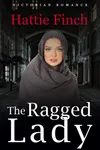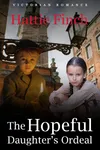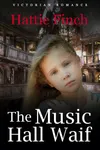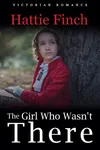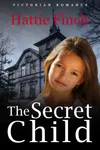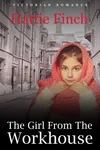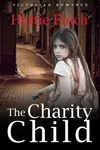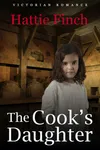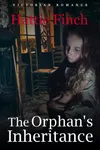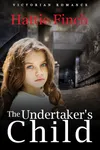Picture a British storyteller who whisked readers to the gritty, gaslit streets of Victorian London, weaving tales of love and resilience—meet Hattie Finch! Celebrated for her historical romance novels, Finch’s vivid prose and meticulously researched settings bring the 19th century to life. Her stories, brimming with passion and social commentary, capture hearts while exploring timeless themes of identity and belonging.
Finch’s unique ability to blend swoon-worthy romance with the harsh realities of Victorian society has earned her a devoted following. From the desperate alleys of her debut to the hopeful spark of her heroines, her novels are a journey into a world where love defies class and convention. Let’s dive into the life and legacy of this captivating author!
The Making of Hattie Finch
Little is known about Hattie Finch’s early life, as she keeps her personal story as mysterious as her novels’ heroines. Believed to be born in Britain, Finch developed a fascination with Victorian history, inspired by tales of strong women who defied societal norms. Her love for tea and storytelling fueled her writing, and she began crafting novels that spotlighted the resilience of overlooked characters—orphans, outcasts, and dreamers.
Finch’s career took off with her debut novel, a gritty yet hopeful tale of survival in London’s underbelly. Her background in historical research shone through, earning praise for authentic settings and complex characters. Writing from a cozy desk with a steaming teacup, she carved a niche in historical romance, blending passion with sharp social insights.
Hattie Finch’s Unforgettable Stories
Finch’s novels are a masterclass in historical romance, set against the stark backdrop of Victorian Britain. Her debut, The Music Hall Waif, follows Susie, a young girl navigating poverty and betrayal after her mother’s disappearance. The novel’s vivid depiction of London’s penny-entertainment scene and Susie’s quest for trust captivated readers with its raw emotion and hope.
The Hopeful Daughter’s Ordeal, another gem, traces Val’s journey from despair to empowerment after her mother’s death. Finch weaves a thrilling tale of survival in a criminal underworld, with a beloved character from her earlier works making a cameo. The Christmas Shop offers a lighter touch, chronicling Prudence’s fight for a better life amid a magical, snowy London. Finch’s prose sparkles with rich sensory details, from the clatter of cobblestones to the flicker of gaslights, while her themes of love and resilience resonate deeply.
Her style is distinctive for its balance of romance and realism. Finch doesn’t shy away from the era’s inequalities—class divides, gender constraints, and poverty—but infuses her stories with hope and agency. Her heroines, often marginalized yet fiercely determined, challenge conventions, making her novels both escapist and thought-provoking.
Why Hattie Finch Matters
Hattie Finch’s impact lies in her ability to humanize the forgotten voices of Victorian Britain. Her novels shine a light on women who, despite societal shackles, forged their own paths. By blending meticulous historical detail with universal themes, she invites readers to reflect on identity, love, and resilience—issues as relevant today as in the 19th century.
Finch’s work has inspired a niche but passionate fanbase, with readers praising her for making history accessible and emotionally gripping. Her stories remind us that love can bloom in the darkest corners, offering hope and inspiration. As historical romance continues to evolve, Finch’s legacy endures as a beacon for storytellers who champion the underdog.
- Born: Unknown, believed to be in Britain
- Key Works: The Music Hall Waif, The Hopeful Daughter’s Ordeal, The Christmas Shop
- Genre: Historical Romance
- Fun Fact: Finch writes every novel with a cup of tea by her side!
Ready to lose yourself in Victorian London? Snag The Hopeful Daughter’s Ordeal and dive into Hattie Finch’s spellbinding world of romance and resilience!
